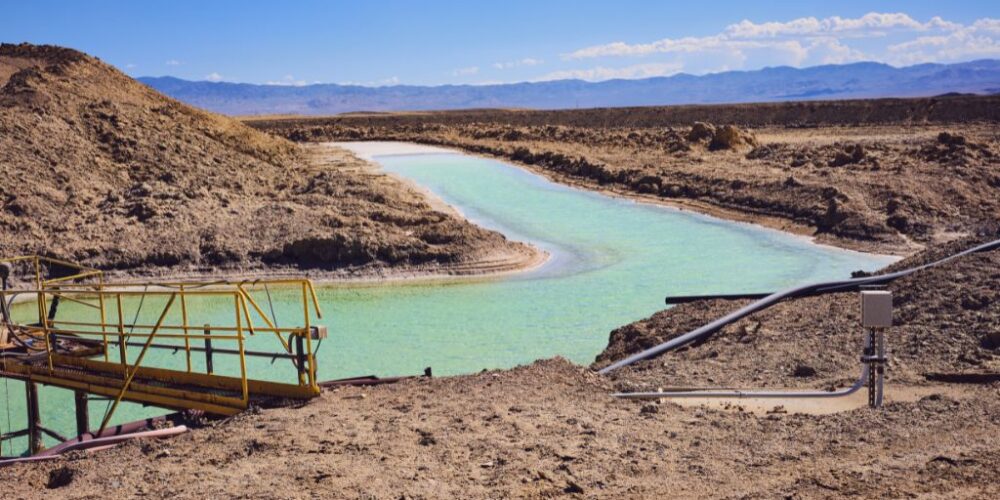Rising from €120M in 2021 to €700M in 2023, investments in mining in Serbia are on trajectory to surpass all other areas of foreign direct investment dominating the Serbian economy. While Rio Tinto, the British-Australian multinational mining company, is not the only corporation in the game for resources in Serbia, the lithium extraction saga with Rio Tinto as the main protagonist has drawn the most attention.
The most recent development is the decision of the Serbian Supreme Court to overturn a previous decision which had stopped Rio Tinto’s lithium mining megaproject in the Serbian region of Jadar. With a price tag of €2.5bn, this project is advertised as the single biggest FDI in Serbian history, and it connects together an entire chain of contracts large companies signed in a bundle with the Serbian government right after the recent court decision. These contracts, as explained by the German chancellor Scholz and the Serbian president Vučić, are there to make Serbia a leader in “green transition”: lithium will be used for electric vehicle batteries in EU-manufactured electric cars (which, as we have seen, are struggling in the market with the competition from China). Serbian industry would retain some contracts for the production of cars as well, but the main focus still remains on the identified reserves of lithium under the agricultural lands of Serbia’s Jadar region, which stands to remain as country’s only major water source after climate change’s ill effects are felt on the existing Serbian water basin.
Aleksandar Matković of the Green-Left Front in Serbia recently received death threats over an open letter in which he exposes the process of colonial subjugation the Serbian president is undertaking with Rio Tinto and other stakeholders (Matković’s letter is well worth a read, and it can be found on tni.org, the website of the Transnational Institute). Through solid materialist analysis and challenging of narratives around “green transition”, Matković demonstrates the mechanisms by which corporations and states created the conditions for an extractivist, neocolonial setup in Serbia, fully aided by the corrupt national government.
He also makes excellent observations about Rio Tinto’s obsession with lithium: other companies in the lucrative business of green transition and dirty extraction of minerals for clean energy might look for alternatives to lithium, but not Rio Tinto. In this commitment of the company to lithium and to the Jadar reserves, Matković recognises the strength of forces which will take all necessary actions to see the mining happen. Matković rightfully laments the complete lack of action on the part of the Serbian state to plan its development, industry, or to take any meaningful climate action: participating in the make-believe “green transition” of large capital is essentially no action at all.
There are multiple reasons why it is important for us to speak of Rio Tinto, Serbia, and lithium. Of course, there is the internationalist element: we recognise the struggle against capitalist exploitation, imperialism, and ruthless colonialist seizure as a part of the international struggle for socialism. Furthermore, in the efforts of capital and the government to trade sovereignty for foreign direct investment, we hear the echo of Irish experiences. From the Marxist perspective, we also have to see the rhetoric around lithium extraction for what it is: the capitalist capture of climate change mitigation in the form of “green transition”. The chain of reasoning is simple enough: to reduce emissions, we should phase out fossil fuel cars, which then need to be replaced by electric cars, which in turn need batteries, and batteries need to be made with lithium. Now, every step in this reasoning can be disputed, and the chain only “works” in the capitalist sense because capital has a business plan for every step of the process.
Again, from the Marxist perspective, it is interesting to read sterilised accounts of this story’s coverage in the media. Even when a newspaper decided to cover the story of Rio Tinto and Serbia through the lens of death threats Matković received, Matković’s own politics get sanitised into a vague green position against a big corporation and a corrupt government. Deciding to omit the materialist analysis Matković put both in his open letter and in his social media posts about threats, the liberal media makes a conscious decision to continue supporting the twisted business model of “green transition”, while temporarily taking offence at the methods used by empire to get what it needs.






